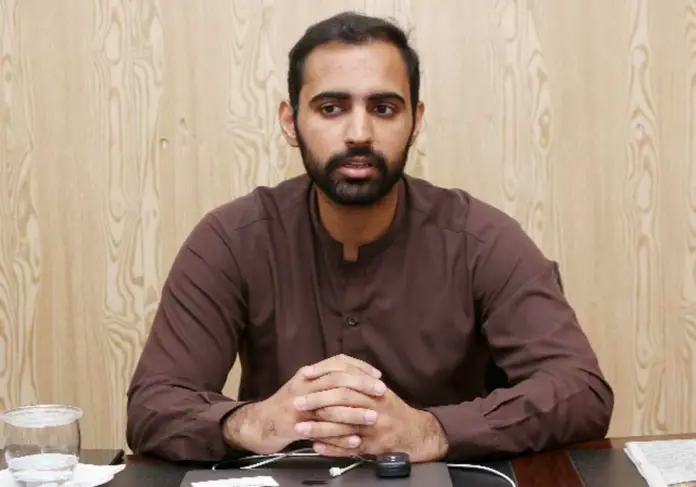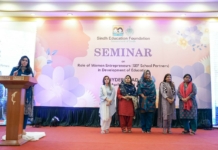It is generally assumed that the arms industry is the main source of strength for the United States, but it is not the case. The real strength of the US is its universities that produce the best minds to lead the country and the global economy through a strong culture of research and development.
Instead of doing research and innovation or studying issues like incessant floods, climate change, draughts or internal conflicts and centrifugal approaches in politics, our universities are simply factories for producing unemployed educated youths, who often end up as babus. The government has limited sources to feed all of them by recruiting in the public sector.
Why could not such a high educational environment be created in our universities?
Several private universities have opened up over the years. However, the quality of education is compromised. The education level is declining day by day.
In this way, even in the global higher education ranking, we fall at the last level. We are intellectually dishonest and plagued with plagiarism.
We have more institutions to monitor the education system, such as the Higher Education Commission and others.
In this regard, Minute Mirror spoke to the Chief Executive Officer of Lahore Leads University (LLU) Hamza Wattoo.
MM: How do you think Pakistan can get out of the problems it currently faces?
Hamza Wattoo: In my opinion, an educated Pakistan can reduce its problems. We have to find the solution to our problems by ourselves; the world will not come to do it.
Our neighbouring countries like Iran, Afghanistan, India and Bangladesh are often affected by floods; among them, Pakistan is the worst country that has ever planned for it. Either we suffer from famine or floods drown us.
Apart from this our underground water reserves are also depleting rapidly. There is a severe shortage of potable water and environmental problems are on the rise.
We have not prepared for post-flood diseases that will arise due to the death of animals. A minimum period of five years will be required to rebuild the infrastructure destroyed by the floods.
MM: What do you think is the main reason for brain drain? Why do people leave Pakistan?
HW: Here people study to get jobs and when jobs are not available people like to go abroad to earn their livelihood.
The UK, where I graduated from, is in dire need of workers these days since it has left the European Union. A developing country like Pakistan needs educated and skilled youth. Their employment problems can be solved in overseas countries and Pakistan can get foreign exchange in return. LLU has focused on futuristic fields including computer sciences, law, engineering, business management and the social sector.
Moreover, there are more than 5,000 students enrolled with the LLU who are getting the best education in their respective fields. We are teaching undergrads to M Phil. We want to start doctorate degrees as well.
To provide international standard education to all students, we have collaborated with a number of universities including Multimedia University Malaysia, Skyline University College UAE, Eastern University Kyrghystan, Towson University USA etc. We have also focused on civil engineering because there is a lot of construction work in the country. Research and development are the essences of Lahore Leads University. We have introduced a culture where we motivate and encourage scholars to think out of the box and engage in activities that can foster a research-based environment. We have published more than 200 research papers in well-known journals.
The pedagogy at Leads follows interactive techniques and outcome-based teaching. Internationally relevant curricula at Leads groom the students for further education in any acclaimed institution of higher learning.
MM: Have you studied the impact of your university’s research on society or the country?
HW: One of our students disclosed an error on the famous social website Facebook and he was rewarded ten thousand dollars. Apart from this, one of our students won the first position in the Prime Minister’s Mathematical Competition.
We don’t believe that marks are the true indicators of students’ calibre. While admitting a student we try to understand the student’s profile and student’s ability to learn rather than his ability to score more marks. We want to focus more on new-age skills.
MM: If we talk about the developed world, there is a close relationship between universities and industry, why is it not the same here?
HW: Yes, that’s right. There were problems in our culture. However, we send our students in the last semester for assignments in industry or software houses so that they get hands-on experience along with classroom teachings. When they step into the practical field after getting their degrees, not only do they face minimal difficulties but their practical experience comes in handy.
MM: At Leads University, do you have any special leadership program?
HW: We have redesigned the existing education model with students and their unique potential. Our students do peer-to-peer evaluations.
MM: Do you promote project-based learning?
HW: Yes, our most important thing is to pay attention to information technology education. We involve our students in project-based learning. We want our students instead of searching for jobs to create their own business and run it. Apart from this, we continue to conduct various programs to bring out the best in the students.
MM: Pakistan’s major problems are that our students go abroad for higher education and research there to find solutions to their problems and in return get the degree and come back to the country when our government keeps on funding what will you say about it?
Yes, that’s right, my Bengali friend was in the UK, he researched traffic problems and the Bangladeshi government bought it. Take the traffic problems, buses and bicycles seem to run in the same queue in our country, so we have a very high accident rate here. I think that universities should have research on the social sector as well as other natural sciences.
Lahore Leads University has one of the best faculties. Our academic team is filled with highly qualified teachers.
MM: Have you established educational research or training relationships with other universities?
HM: Yes, of course, we have collaborated with the University of Gujrat which is a public sector university for teacher training. Also, we are in touch with the Higher Education Commission to have our teachers trained. We allocate funds of around four hundred million rupees for needy students. We provide full educational support to orphans and eligible students.







